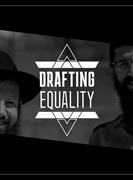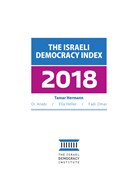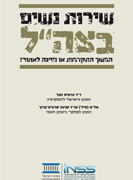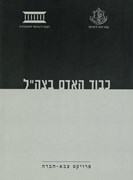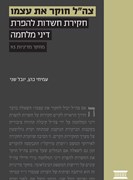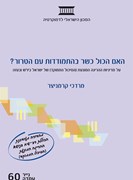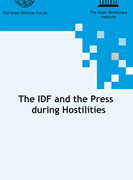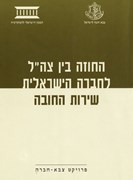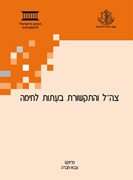

Publications Regarding IDF
Articles

Dr. Gilad Malach on TOI's "What Matters Now"
Written By: Dr. Gilad Malach, Amanda Borschel-Dan
IDI Research Fellow Dr. Gilad Malach joins host Amanda Borschel-Dan on the Times of Israel weekly podcast, What Matters Now. They discuss the contentious matter of ultra-Orthodox (Haredi) conscription, including the history of Haredi exemption from IDF service, modern cultural norms in Haredi society, and the current Haredi conscription proposal making its way through Knesset.

Public Opinion in Israel on the IDF and National Security
Written By: Center for Security and Democracy, Viterbi Family Center for Public Opinion and Policy Research
The findings of the annual survey of the Center for Security and Democracy and the Viterbi Family Center for Public Opinion and Policy Research at the Israel Democracy Institute were presented at the Annual Conference on Security and Democracy, held at the Israel Democracy Institute on Tuesday–Wednesday, November 25–26, 2025.

What is Missing from the Court's Decision on the MAG Leak Investigation
Written By: Prof. Suzie Navot
The High Court handed down a decision allowing the Minister of Justice choose the civil servant to oversee the investigation into the Sde Teiman video leak affair in the Attorney General's stead. This sets a concerning precedent and ignores the current political reality in Israel.

Don't Turn the MAG Affair Into a Political Weapon
Written By: Prof. Benjamin Porat
All participants in Israel’s public discourse would do well to use this astonishing affair to repair the legal system, not to score points against ideological rivals.

The Bismuth Outline for the Draft Exemption Law
Written By: Adv. Shlomit Ravitsky Tur-Paz

The Political Theater of the Haredi Conscription Compromise
Written By: Prof. Amichai Cohen
At its core, this is a debate if there should be a blanket exemption for Haredi men and a target number of recruits from the community each year, or if there should be a requirement to serve with a limited number of annual. Counterintuitively, the compromise proposed by the coalition could lead to an outcome that would actually remove from the agenda a meaningful draft of Haredim.

A Year Since the Supreme Court’s Conscription Ruling – Was It Real, or Just a Dream?
Written By: Adv. Shlomit Ravitsky Tur-Paz
Exactly one year ago, Israel's Supreme Court ruled—in a measured manner—that the state must follow its own laws on drafting Haredim. But of the 19,000 summons issued by early June 2025, only about 5% (996) reported to induction centers, and just 1.2% (232) were actually conscripted.

The Latest Haredi Enlistment Targets: Insufficient and Ineffectual
Written By: Adv. Shlomit Ravitsky Tur-Paz, Yohanan Plesner

The Tasks Awaiting the New Chief of Staff – The Relationship Between the IDF and Israeli Society
Written By: Prof. Amichai Cohen
The incoming Commander-in-Chief of the IDF, Major General Eyal Zamir, faces a number of challenges as he takes up his role beyond the security of Israel. He must integrate the ultra-Orthodox, uphold the IDF's ethical values, and restore public trust in its senior command to preserve the military's identity as the 'people's army.'

A Dangerous Attempt to Politicize Israel's National Security
Written By: Dr. Eran Shamir-Borer, Adv. Edna Harel Fisher
Defense Minister Katz recent demand that the IDF Chief of Staff reprimand the Chief of the IDF Intelligence Directorate for presenting the possible security implications of the "Trump plan" for Gaza is the latest in several steps that threaten to politicize Israel's national security agencies, a process that could be disastrous for the country.

Majority of Israelis Support a Deal to Release All Hostages and End the War
Written By: Prof. Tamar Hermann, Dr. Lior Yohanani, Yaron Kaplan, Inna Orly Sapozhnikova
A majority of Israelis (57.5%) support a comprehensive deal for the release of all the hostages in return for an end to the war in Gaza; Most Israelis think the current situation in Syria serves Israeli interest (52.5%); 68% of all Israelis, as well as 60% of Likud voters, are opposed to a law exempting Haredim from military service, even if this would mean a dissolution of the Knesset and new elections.

Reserve Duty During the Iron Swords War by Religious Self-Definition
Written By: Dr. Ariel Finkelstein, Nadav Porat Hirsh
This study presents a survey of the distribution of reserve duty among the various religious groupings within the Jewish population, along with more in-depth analysis regarding the age and gender of reservists.

High Levels of Trust in IDF More than One Year Into the War, Except Among Ultra-Orthodox and Arab Israelis
Written By: Viterbi Family Center for Public Opinion and Policy Research, Center for Security and Democracy
A special survey assessing public opinion on matters of national security, presented at IDI's annual conference on Security and Democracy. The survey found support for a mandatory draft, and significant economic penalties for those who do not serve.

The Two Coalitions Israel Needs Now
Written By: Yohanan Plesner
It is increasingly clear that Israel’s future depends on the forging of two coalitions. One is a multinational alliance determined to turn the Palestinian issue from a driver of conflict into an engine of peace. The other, is an internal Israeli coalition ready to pursue a series of bold social, economic, and political reforms.

Haredi Yeshiva Students Are Being Called to IDF Enlistment Centers. What’s Next?
Written By: Adv. Shlomit Ravitsky Tur-Paz, Dr. Eran Shamir-Borer, Adv. Mirit Lavi
On Monday August 5, 2024 and Tuesday August 6, 2024—900 ultra-Orthodox yeshiva students were required to present themselves at IDF enlistment centers. Shlomit Ravitsky Tur-Paz, Dr. Eran Shamir-Borer and Mirit Lavi explain the next steps the IDF will need to take in order to enforce the legal obligation of conscription.

Even Against Terrorists – The Rule of Law Prevails
Written By: Prof. Suzie Navot, Adv. Sapir Paz
The rule of law is a fundamental democratic principle, meaning that all governing bodies are subject to and must comply with the law. Despite the complexities inherent in ongoing war, this is true also of the IDF, and only decisive action against breaches of conduct may protect the rule of law in Israel and Jewish morality.

Investigating Allegations of Detainee Abuse is Israel’s Moral and Legal Duty - And a Diplomatic Necessity
Written By: Prof. Amichai Cohen, Dr. Eran Shamir-Borer
Investigating allegations of abuse at the Sde Teiman detention facility is Israel's moral and legal duty as a rule-based democracy and protects the country on the international legal and diplomatic front.

Ultra-Orthodox Draft Challenges and Objectives
Written By: Adv. Shlomit Ravitsky Tur-Paz
As the IDF issues the first batches of draft orders for ultra-Orthodox men, the following outlines the challenges, opportunities and objectives of an amended conscription law.

A Joint Effort: Integrating Haredim in the IDF
Written By: Prof. Daniel Statman
The IDF should do what it can to ease the transition of Haredim from the social frameworks in which they have grown up and been educated into the military, but it is also important for new conscripts to understand that the rules cannot be changed according to the preferences of every single soldier or group.

So Haredi Men Must be Drafted. What Now?
Written By: Dr. Eran Shamir-Borer, Adv. Mirit Lavi
Nine Supreme Court Justices ruled unanimously that the state must act to enforce Israeli conscription legislation and apply it to Haredi men. For this to be realized the IDF and the defense establishment must also make significant changes. These are the issues the IDF should take into consideration.

Ultra-Orthodox Conscription | Supreme Court Ruling | Yohanan Plesner on CNN
Written By: Yohanan Plesner
"It's a matter of a change in the trajectory," says Yohanan Plesner, president of IDI following the Israeli Supreme Court ruling on the issue of ultra-Orthodox conscription.

Supreme Court Ruling on Haredi Draft | Yohanan Plesner on BBC News
Written By: Yohanan Plesner
"Basically we've entered into a new unknown terrain," says IDI President Yohanan Plesner.

Principles for a Fair Draft Law
Written By: Yohanan Plesner
Yohanan Plesner, President of IDI lays out the basic principles for a fair draft law.

The Economic Impact of Haredi (non) Enlistment
Written By: Adv. Shlomit Ravitsky Tur-Paz
What are the economic impacts of the Haredi blanket exemption and how would drafting the ultra-Orthodox benefit Israeli society and economy?

A Historic Supreme Court Hearing on Haredi Conscription and Yeshiva Funding
Written By: Adv. Shlomit Ravitsky Tur-Paz
Israel's Supreme Court convened to hear arguments on the issue of drafting ultra-Orthodox yeshiva students who no longer are exempt from military service, and the legality of providing funding for yeshivas that enroll them as long as no new law has been legislated on this issue.

Timeline: The Ultra-Orthodox and the IDF Draft
Written By: The Israel Democracy Institute
When did the ultra-Orthodox first receive an exemption from military service? How have Haredi demographics influenced this issue?
This is a timeline of the central milestones affecting the issue of Haredi conscription.

The latest military exemption law - a return to the 2022 (non-) conscription law
Written By: Yohanan Plesner , Adv. Shlomit Ravitsky Tur-Paz, Dr. Gilad Malach
The proposed law ignores the dramatic change in Israel's security situation since October 7 and does not address the need for more combat soldiers, nor does it respect the burden on the populations that already serve.

I, Too, Have Come to my Senses: It is Time to Rethink the Haredi Role in Israeli Society
Written By: Dr. Rivka Neriya Ben-Shahar
Dr. Rivka Neriya-Ben Shahar proposes a model that resembles the secular educational system of colleges and universities to identify the most gifted torah scholars, who would receive a generous stipend. Others must rethink their role as part of Israeli society.
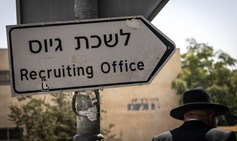
Military Service Law and Reserve Service Law Amendments (extension of mandatory and reserve service period): Professional Opinion
Written By: Yohanan Plesner , Dr. Eran Shamir-Borer, Prof. Amichai Cohen
The government wishes to amend the Military Service Law and Reserve Service Law due to the new security circumstances arising from the outbreak of the war in Gaza. While recognizing the immediate imperative to respond to IDF's personnel needs, we oppose these legislative proposals.
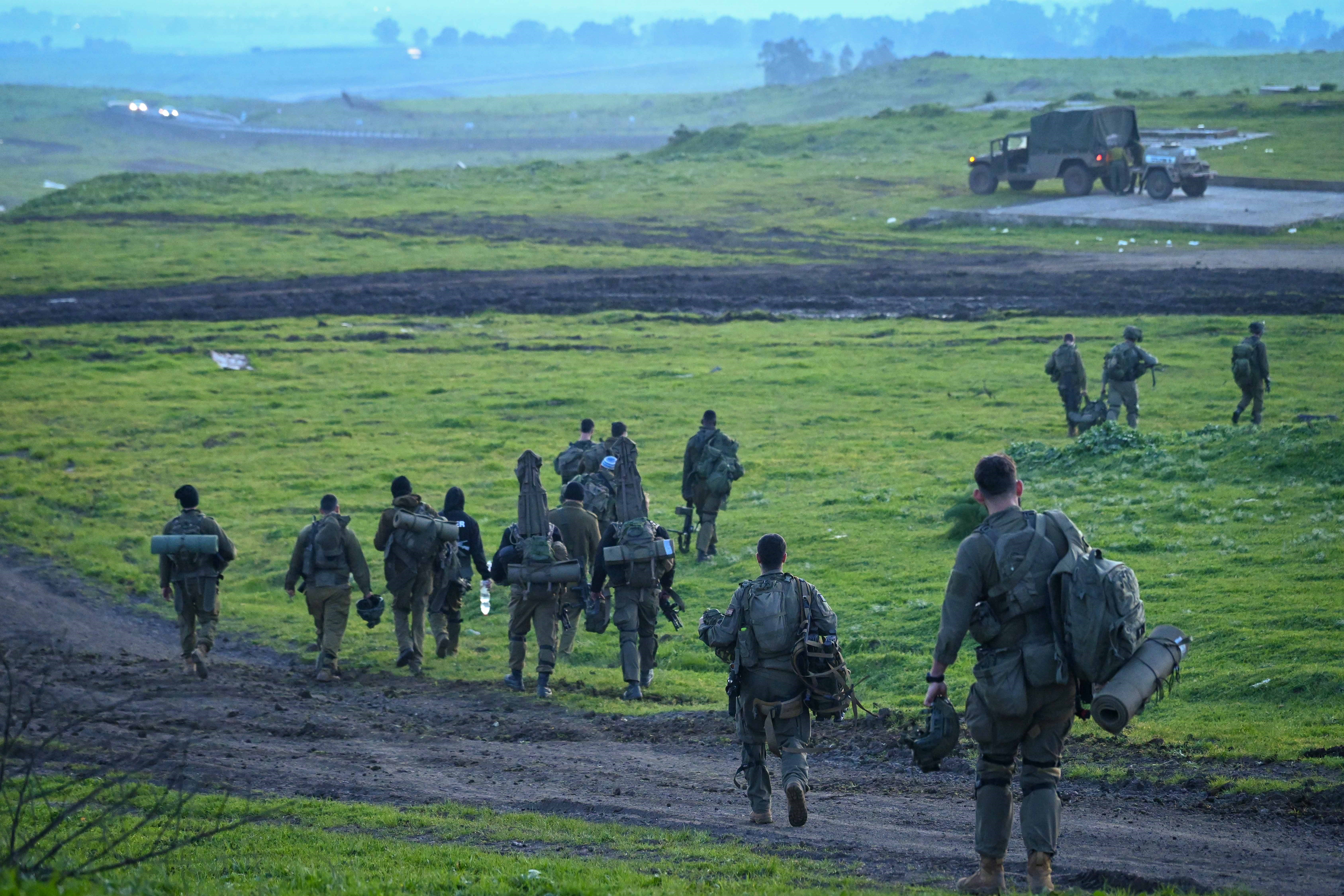
A More Targeted Approach to IDF Reservist Compensation
Written By: Dr. Carmit Padan
Israeli reserve soldiers are making unimaginable sacrifices to protect their country. To rise to the challenge of meeting the IDF's expanded personnel needs, Israel's policy solutions must be as diverse as are the reservists serving this nation. A "one-size-fits-all" compensation approach will not cut it.
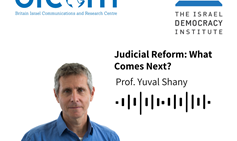
Judicial Reform – What Comes Next? PART 2 OF 2
Written By: Prof. Yuval Shany,
In the second part of this two-part episode, Jack Omer-Jackman speaks to renowned Israeli legal scholar and IDI expert Professor Yuval Shany to discuss the Supreme Court’s upcoming deliberations on the legislation annulling reasonability; the significance of basic laws; the impact of reservists’ protests on Israel’s military preparedness and the role of a citizen army in a democracy.

Judicial Reform – What Comes Next? PART 1 OF 2
Written By: Prof. Yuval Shany,
In the first part of this two-part episode, Jack Omer-Jackman speaks to renowned Israeli legal scholar and IDI expert Professor Yuval Shany to discuss the Supreme Court’s upcoming deliberations on the legislation annulling reasonability; the significance of basic laws; the impact of reservists’ protests on Israel’s military preparedness and the role of a citizen army in a democracy.
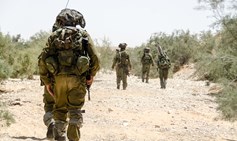
The Judicial Reforms Implications on Israel's Standing in the International Courts
Written By: Prof. Yuval Shany
The Israeli judicial system’s independence and professionalism protect IDF commanders from prosecution in international courts. A close look at the planned judicial overhaul leads to the conclusion that if implemented it would increase the risk to Israeli citizens and make it harder for the country to protect them in the future.
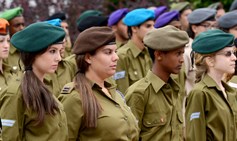
Women’s Service in the IDF: Between a ‘People’s Army’ and Gender Equality
Written By: Dr. Idit Shafran Gittleman
Over the years and especially in recent decades, the concept of gender equality has also become relevant to the discussion of military service, and more and more roles have been opened up to women serving in the IDF. Dr. Idit Shafran Gittleman presents an overview of women in the IDF since its establishment.
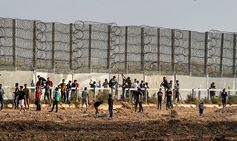
The Silence of the Commanders
Written By: Dr. Idit Shafran Gittleman
False quick-spreading claims blamed an IDF soldier's death on overly stringent rules of engagement. What took the military so long to set the record straight?
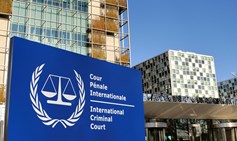
The Ruling by the International Criminal Court: Background, Analysis, and Implications
Written By: Prof. Amichai Cohen
The ICC's ruling to allow the possibility of an investigation into Israeli actions is only the start of a process that is likely to go on for many years. What are the next steps and what are the possible implications for Israel?

On the decision by the ICC in The Hague
IDI Vice President Prof. Yuval Shany on the decision by the International Criminal Court in The Hague (ICC): "It will be a long time before the investigations mature into indictments or arrest warrants."

National Security and Democracy Conference Day 1
IDI's annual conference on National Security and Democracy, held in partnership with the Konrad Adenauer Stiftung (Israel office), convened top officers and academic experts to discuss the changing relations between the IDF and Israeli society and draw lessons for the future from the military’s unprecedented involvement in the civilian COVID-19 crisis.
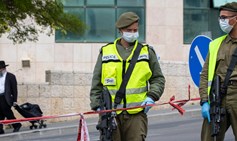
Large Majority Think IDF Should Manage Coronavirus Crisis
A special survey reveals that the public perceives the IDF as a skilled army and is prepared to face major military threats
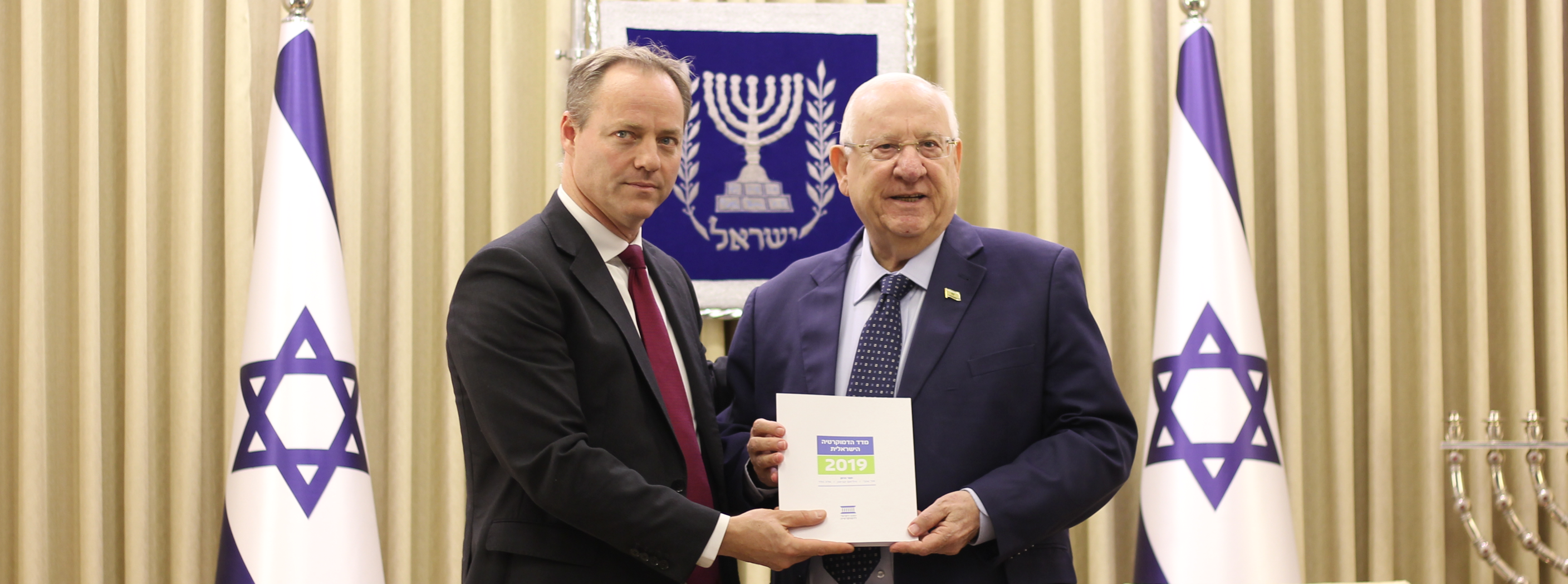
IDI Releases 2019 Democracy Index
Written By: Prof. Tamar Hermann, Dr. Or Anabi, Dr. William Cubbison, Ella Heller
50% of Israelis Believe that the State of the Country is 'Good'. Conversely: 58% of Israelis Believe that Their Leadership is Corrupt and 59% of Israelis Think that Supreme Court Judges’ Rulings are Politically Biased

The Decade in Review: Women’s Service in the IDF
Written By: Dr. Idit Shafran Gittleman
The last decade has seen the most meaningful changes in gender equality and women’s service in the IDF since the State was established.
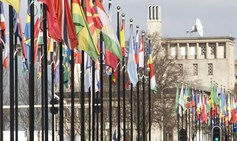
ICC in The Hague - Investigation Against Israel: Explainer
Written By: Prof. Yuval Shany, Colonel (Res.) Dr. Liron A. Libman
Everything you wanted to know about the International Criminal Court in The Hague and its decision to open an investigation against Israel for war crimes
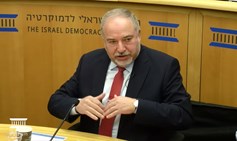
MK Liberman: " If third elections are held the outcome will be different"
MK Avigdor Liberman at IDI Annual Conference on Security and Democracy: "I fully trust the security forces know how to deal with threats in a professional manner uninfluenced by outside biases"

What Really Lies behind the Rabbis’ Directive on Modesty?
Written By: Dr. Idit Shafran Gittleman
What really lies behind the most recent rabbinical directive on modesty in the IDF - and how does it pits religious soldiers against IDF's core values to the extent of risking insubordination.

A Mutual Defense Treaty With the United States—A Complicated Proposition for Israel
Written By: Colonel (Res.) Dr. Liron A. Libman
Supporters and opponents argue the pros and cons of such a deal but instead of asking whether a mutual defense treaty would be good or bad for Israel, it would be better to focus on the specific elements of such a treaty.

Defending Women’s Rights to Serve Equally
Written By: Dr. Idit Shafran Gittleman
Creating a gender-equal military is a complicated task, but the IDF must not forget its responsibility, nevertheless many Israeli soldiers have not been trained on gender equality says Idit Shafran Gittleman.
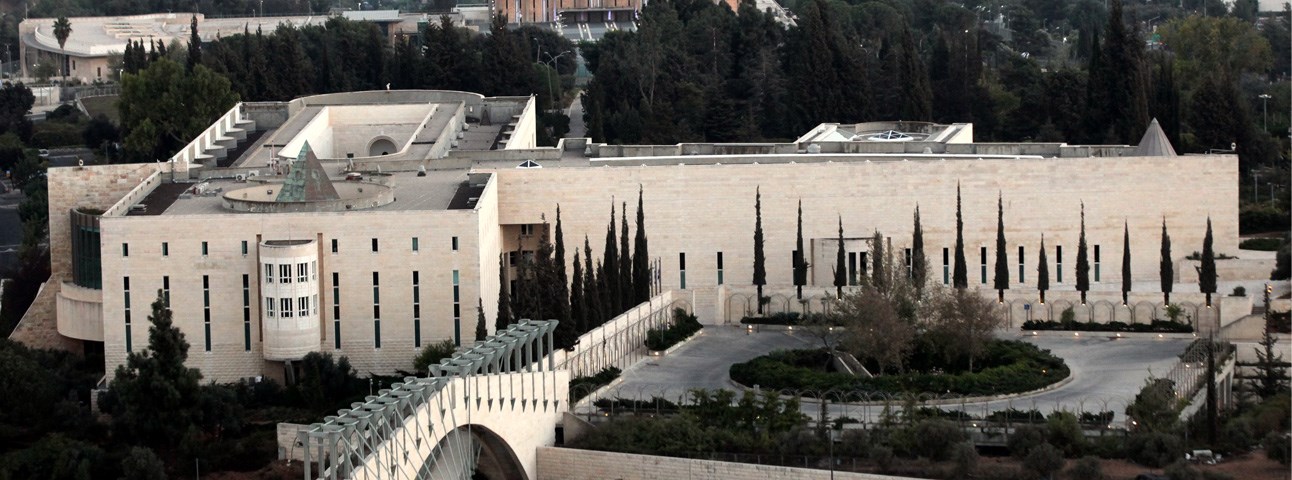
The Supreme Court Doesn't "Tie Hands"
Written By: Dr. Amir Fuchs
On claims that the High Court ties the security establishment's hands, Dr. Amir Fuchs says "the truth is that when authoritative figures from the defense establishment appear before the court to support some important security requirement, the court almost always adopts their argument".

Is Limiting the Gaza Fishing Zone Collective Punishment?
Written By: Colonel (Res.) Dr. Liron A. Libman
Against the backdrop of the armed conflict between Israel and the Hamas - is limiting the space available for fishing near Gaza's shores collective punishment?
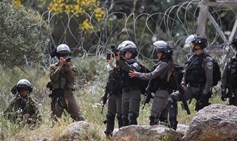
Study Reveals: Proportionality in War Still a Riddle
Written By: Prof. Amichai Cohen, Prof. Raanan Sultizeanu-Kenan, Prof. Daniel Statman, By: Arieh O'Sullivan
Israeli military officers are less tolerant of higher civilian casualties than their American counterparts.
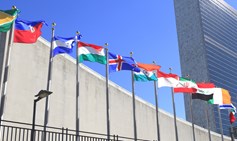
UN Commission Report on Gaza – Response
Written By: Prof. Yuval Shany, Colonel (Res.) Dr. Liron A. Libman, Prof. Amichai Cohen
The report and its conclusions, regardless of whether or not they will be acceptable to the State of Israel, once again highlight the importance of the rule of law, and bring to the fore the need for in-depth investigations of events which might be construed as in violation of international law
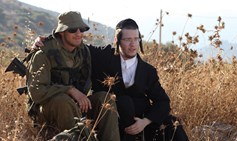
Climbing up the Socioeconomic Ladder: Military Service among the Ultra-Orthodox
Written By: Dr. Asaf Malchi
Even though military service seems to be one of the most blatant threats to the ultra-Orthodox lifestyle, it has become a rather attractive channel for broad segments of the community.

House Demolition at the Israeli Supreme Court: Recent Developments
Written By: Prof. Yuval Shany, Prof. Amichai Cohen
In its fight against terrorism, Israel has often been proud of its ability to effectively fight terrorism, while remaining faithful to democratic principles. House demolitions were always considered a necessary evil, which could be resorted to in very exceptional circumstances - are we now facing populist trends that runs contrary to the traditional ethos of subjecting counterterrorism policies to rule-of-law constraints.

Citizenship and Military Service in Ultra-Orthodox Society
Written By: Dr. Asaf Malchi
More and more ultra-Orthodox (Haredi) Israelis are enlisting in the IDF, driven by personal, financial, and professional motives, with military service seen as an “entrance ticket” to Israeli society and to the labor market. But military service also introduces them to the shared components of identity and citizenship linking them to the state and its values, and enabling them to identify with others, from outside their community.

Does Benjamin Netanyahu Face Real Competition?
Written By: Prof. Tamar Hermann, Prof. Efraim Yaar
The monthly Peace Index reveals that: 46% of Jewish Israelis name Benjamin Netanyahu as their preferred candidate for the next prime minister.
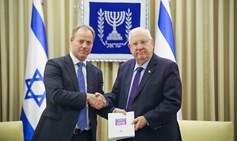
Presentation of the Israeli Democracy Index to the President of Israel
Written By: Yohanan Plesner
"Our central mission—and we see you as a partner in this—is to strengthen Israel’s democratic core in the spirit of the Declaration of Independence" says Yohanan Plesner in his address to President Reuven Rivlin.
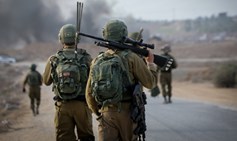
The Role of Politicians and the Role of Attorneys
Written By: Colonel (Res.) Dr. Liron A. Libman
For Israel, coping with the situation in the Gaza Strip is far from simple. The way the situation is handled has security, economic, humanitarian, and political implications. Therefore leadership must act and speak responsibly - this is not always the case.
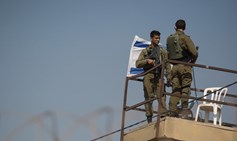
‘Black Friday’ and Other Investigations: Initial Observations
Written By: Prof. Amichai Cohen, Prof. Yuval Shany
Initial observations on Israeli's Military Advocate General's decision to conclude investigation into 'Black Friday'.

If Meitav's Website Was Hacked - the Breach Was Almost Inevitable
Written By: Dr. Tehilla Shwartz Altshuler
The breach of IDF’s Meitav website was almost inevitable, in light of inadequate attention to the need to protect sensitive personal information and the lack of supporting legislation in Israel.
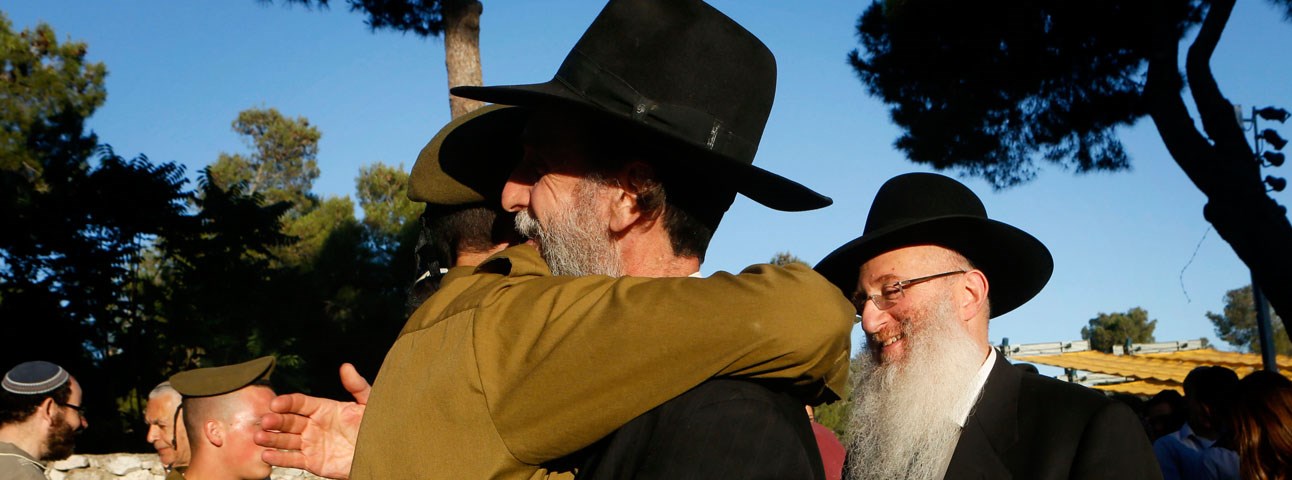
Israel needs a draft law that will uphold the principle of civic equality
Written By: Yohanan Plesner
Now is the time to rise above petty politics and pass a draft law that will uphold the principle of civic equality in Israel.

Israel's wealthiest are abandoning IDF combat units
Written By: Dr. Asaf Malchi
Israel's secular elite has lost its enthusiasm for combat service and now targets intelligence units, such as Unit 8200.
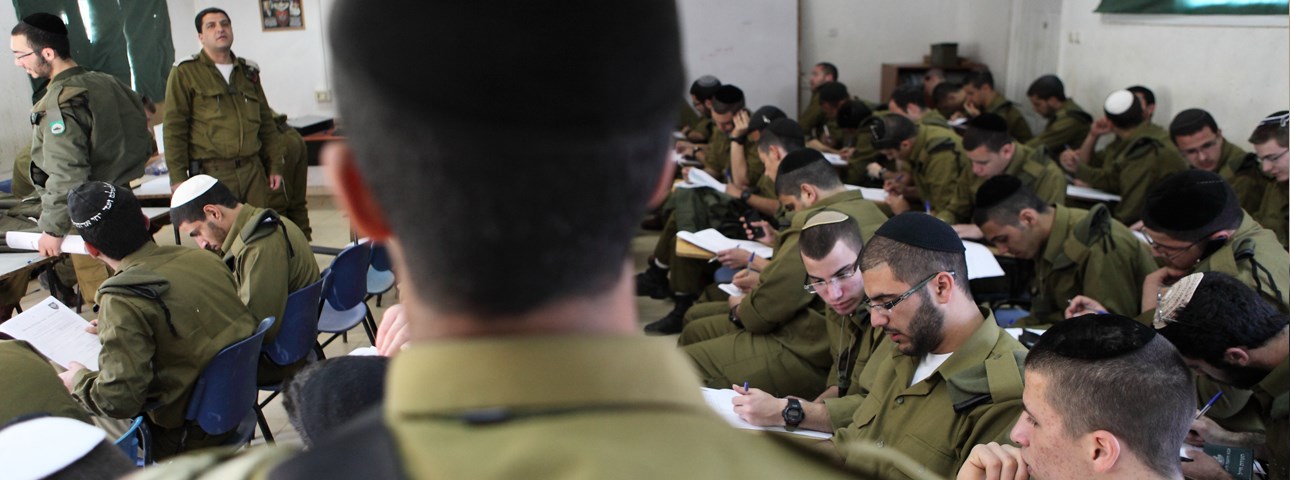
Proposal for Amending Ultra-Orthodox Conscription Plan
Written By: Yohanan Plesner , Prof. Amichai Cohen, Dr. Gilad Malach
IDI puts forth analysis of why the proposed conscription plan for the ultra-Orthodox is problematic and offers an alternative approach
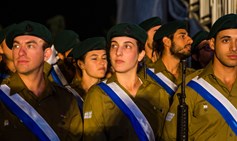
Quo Vadis, IDF?
Written By: Prof. Yuval Shany, Prof. Amichai Cohen, Gilad Halpern, Dr. Dahlia Scheindlin
Professor Yuval Shany and Professor Amichai Cohen discuss the pivotal role of the IDF in Israeli life - past and present.
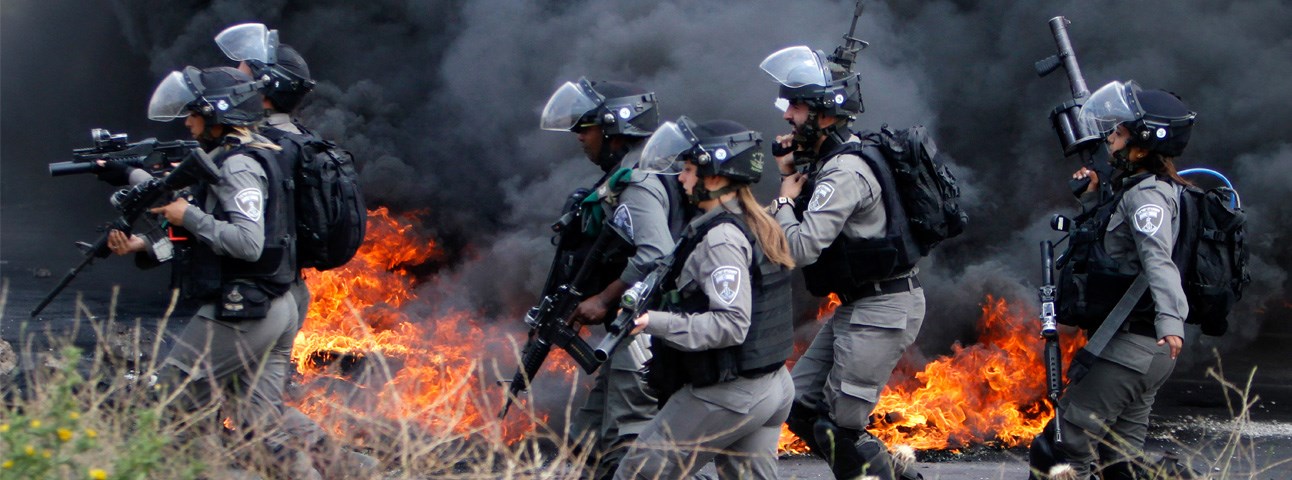
Will Israel go to war in the coming months?
Written By: Prof. Tamar Hermann, Prof. Ephraim Yaar
The monthly Peace Index of the Israel Democracy Institute and Tel Aviv University, published today, finds that the Israeli public split on prospect of war in the coming months

Will an Amendment to Israel's National Security Law Change the Rules of the Game?
Written By: Prof. Amichai Cohen
In the US and more recently in Israel there is public discussion over the principled issues of the balance between the different branches of government in matters of national security and the proper mechanism to create accountability in these matters are universal.
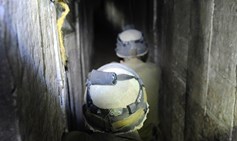
What is the State’s Obligation to Soldiers who have been Captured while Fulfilling their Duty?
Written By: Admiral (Res.) Amichay (Ami) Ayalon, Amichai (Ami) Ayalon
In an op-ed soon to be published by the Jerusalem Report, the former head of the Shin Bet security service argues that mutual responsibility is the cornerstone on which the resilience of Israeli society is founded, and is most strongly expressed in the commitment of the government of Israel to do everything possible to secure the release of its captured soldiers.

A Bitter Failure of Israel’s Democracy
Written By: Prof. Amichai Cohen
While there is no way to know whether the military picture of the recent Gaza war would have been different had members of the security cabinet been kept abreast of the tunnel threat, there can be no doubt that what occurred was a failure of Israel’s democracy.

Israel Democracy Institute Scholar: Should Elor Azaria be Pardoned?
The Israel Democracy Institute’s Dr. Amir Fuchs came out against the statement by Minister Naftali Bennett that Elor Azaria should be immediately pardoned, even if convicted by the military court. Azaria shot a terrorist who came at soldiers with a knife, after the terrorist was disarmed. Fuchs said that Bennett’s proposal is unadvisable.

Monthly Peace Index: IDF should Espouse Pluralistic and Open Value System
Sixty-nine percent of Jewish Israelis believe it is good for the IDF to espouse a pluralist and open value system, including accepting “others,” such as members of the LGBT community.

Israel’s Agreement with Turkey: Does it Protect IDF Soldiers from Prosecution?
Written By: Prof. Amichai Cohen, Adv. Tal Mimran
Prime Minister Benjamin Netanyahu announced recently that Israel and Turkey had reached an agreement leading to reconciliation between the two countries – and the Knesset approved the deal. Now the question becomes: will the deal have the impact Israeli soldiers are hoping for? Originally published by the Jerusalem Post.

Plesner: 'Political Echelon has Obligation to Support IDF Senior Commanders'
IDI President speaks out after heated conversation between Prime Minister Benjamin Netanyahu and Defense Minister Moshe Ya'alon goes public.

IDI President Yohanan Plesner: 'Against Rally for Soldier Who Shot Neautralized Terrorist'
IDI President Yohanan Plesner today came out against the decision to hold a rally on April 19 in support of the IDF soldier who shot dead a disarmed Palestinian attacker in Hebron last month.

A Democratic or Republican Candidate?
Peace Index: Israelis weigh in on which candidate is better for the Jewish State; Survey examines perceptions of Jerusalem as a divided city.
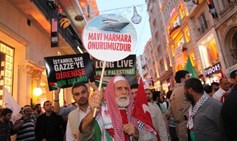
Are Israeli soldiers at risk of prosecution abroad?
Written By: Prof. Amichai Cohen
Prof. Amichai Cohen argues that there is only one good way to prevent prosecution of Israeli soldiers abroad: Israeli authorities must conduct effective, independent, and genuine investigations in cases where there are suspicions of war crimes or other violations. This article was first published by Times of Israel.

Prof. Amichai Cohen Warns about International Intervention in Israeli Investigation of Operation Protective Edge
Upon the release of the findings of the international investigation of Operation Protective Edge: IDI warns that the intervention by international bodies in the investigation of the events of the Operation in Gaza undermines the basis of the international demand to establish investigative mechanisms and weakens the Israeli legal system.
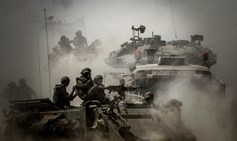
IDI Submission to the UN's International Commission of Inquiry on the 2014 Gaza Conflict
Written By: Prof. Amichai Cohen
Submitted to the UN International Commission of Inquiry on February 11, 2015, this document details the role of lawyers within the Israeli Defense Forces in implementing and enforcing International Humanitarian Law within the IDF.
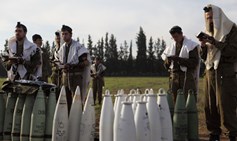
The Haredi Draft: Snakes and Ladders
Written By: Prof. Yedidia Z. Stern
Prof. Yedidia Stern analyzes the problems with past proposals to integrate the ultra-Orthodox sector into the IDF, and proposes a new solution.
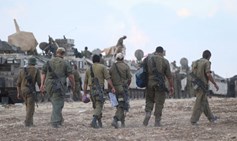
Is There a Place for God in the Israeli Army?
Written By: Prof. Yedidia Z. Stern
In an article in the <em>Jewish Week</em>, IDI Vice President Yedidia Stern discusses the question of whether it is appropriate for commanders to use religious rhetoric in motivating their soldiers, and stresses the need for the Israeli army to represent all.
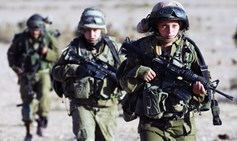
The IDF’s Fighting Ethos in the Wake of Operation Protective Edge
Written By: Yohanan Plesner
IDI President Yohanan Plesner stresses the need to ensure that the Israel Defense Forces remains at the heart of the Zionist consensus so as to enable it to continue to be the army of all citizens of Israel.

A Betrayal of International Law
Written By: Prof. Mordechai Kremnitzer
In a Jerusalem Post op-ed, Prof. Mordechai Kremnitzer argues that by breaching their responsibility to be impartial, the UN Human Rights Council and its commission for investigating alleged war crimes in Gaza are betraying international law, even if unintentionally.
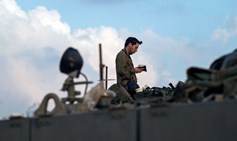
The IDF: Army of the People or Army of God?
Written By: Prof. Mordechai Kremnitzer
IDI Vice President Prof. Mordechai Kremnitzer addresses the question of the appropriateness of the letter that Givati Brigade commander Col.Ofer Winter sent to his subordinate officers as Israel prepared for the ground incursion in Gaza in the summer of 2014.

Mourning for Gazan Children Isn't Left-Wing
Written By: Prof. Mordechai Kremnitzer
IDI Vice President Prof. Mordechai Kremnitzer discusses the High Court of Justice's decision to uphold the Israel Broadcasting Authority's rejection of an infomercial in which the names of Gazan children who were killed in Operation Protective Edge would have been read aloud.
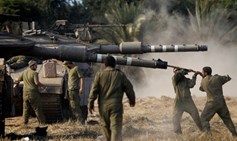
Investigating Allegations of Violations of the Laws of War by the IDF during Operation Protective Edge: The Alternatives Available to Israel
Written By: Prof. Yuval Shany, Prof. Amichai Cohen
How should suspected violations of the international laws of war be investigated? As Operation Protective Edge winds down, Prof. Yuval Shany and Prof. Amichai Cohen discuss the options of an internal investigation by the IDF, an international investigation, and an Israeli commission of inquiry.

Investigating Allegations of Violations of the Laws of War by the IDF during Operation Protective Edge: The Alternatives Available to Israel
Written By: Prof. Yuval Shany, Prof. Amichai Cohen
How should suspected violations of the international laws of war be investigated? As Operation Protective Edge winds down, Prof. Yuval Shany and Prof. Amichai Cohen discuss the options of an internal investigation by the IDF, an international investigation, and an Israeli commission of inquiry.
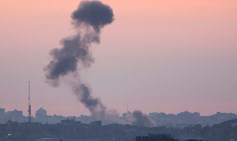
On Operation Protective Edge, Justice, Law, and Victory
Written By: Admiral (Res.) Amichay (Ami) Ayalon
Admiral Ami Ayalon asserts that the winner of today's wars is the side whose story is perceived as just, and argues that without a diplomatic track, Israel cannot win the war, even if the war is justified and Israel adheres to international law in the face of terrorists who violate it.

July 2014 Peace Index
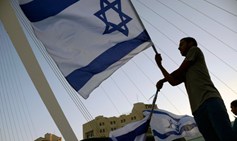
A Red Alert for Israeli Democracy
Written By: Yohanan Plesner
In the midst of Operation Protective Edge, IDI President Yohanan Plesner warns of the dangers of racism, incitement, and stifling of free speech and asserts that it is essential to internalize a substantive democratic culture.

Operation Protective Edge and International Law
Written By: Yohanan Plesner , Prof. Mordechai Kremnitzer, Prof. Amichai Cohen, Adv. Eli Bahar
As Operation Protective Edge enters its second week, IDI experts outline the legal basic concepts involved in asymmetrical warfare and the boundaries of permissible action according to standard interpretations of existing international law.

The Role of a Legal Advisor during Times of Combat
Written By: Adv. Eli Bahar
IDI Researcher Attorney Eli Bahar discusses the central role that members of Israel's system of legal counsel play in formulating the rules of what is permissible during warfare in real time, during the fighting, in order to ensure that Israel's citizens will not be ashamed of themselves after the fighting ceases.
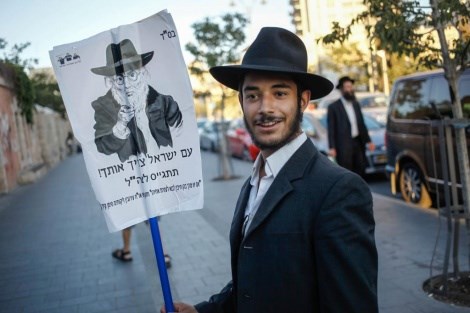
Ultra-Orthodox Integration: It Takes Two to Tango
Written By: Haim Zicherman
In an op-ed in Ynet News, IDI researcher Dr. Haim Zicherman discusses the steps that Israeli society must take in order to enable ultra-Orthodox men to integrate into the Israeli army and workforce.

My Jerusalem: Thoughts for Jerusalem Day
Written By: Prof. Mordechai Kremnitzer
IDI Vice President Prof. Mordechai Kremnitzer shares thoughts on Jerusalem, which symbolizes what is most beautiful and exalted in Jewish culture: the commitment to law and morality, to justice and mercy.
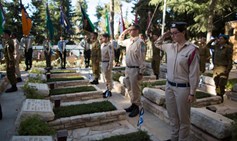
A Jewish State Warrants Our Sacrifice
Written By: Prof. Yedidia Z. Stern
IDI Vice President Prof. Yedidia Stern reflects on the privilege of sacrifice and the necessity to maintain a Jewish Israel in order to justify that sacrifice, in an article written for Remembrance Day for the Fallen of Israel's Wars and Victims of Terrorism.

Remembering Ariel Sharon (1928–2014)
Written By: Prof. Ofer Kenig
Dr. Ofer Kenig presents some of the milestones in the career of Ariel Sharon, the 11th Prime Minister of the State of Israel.
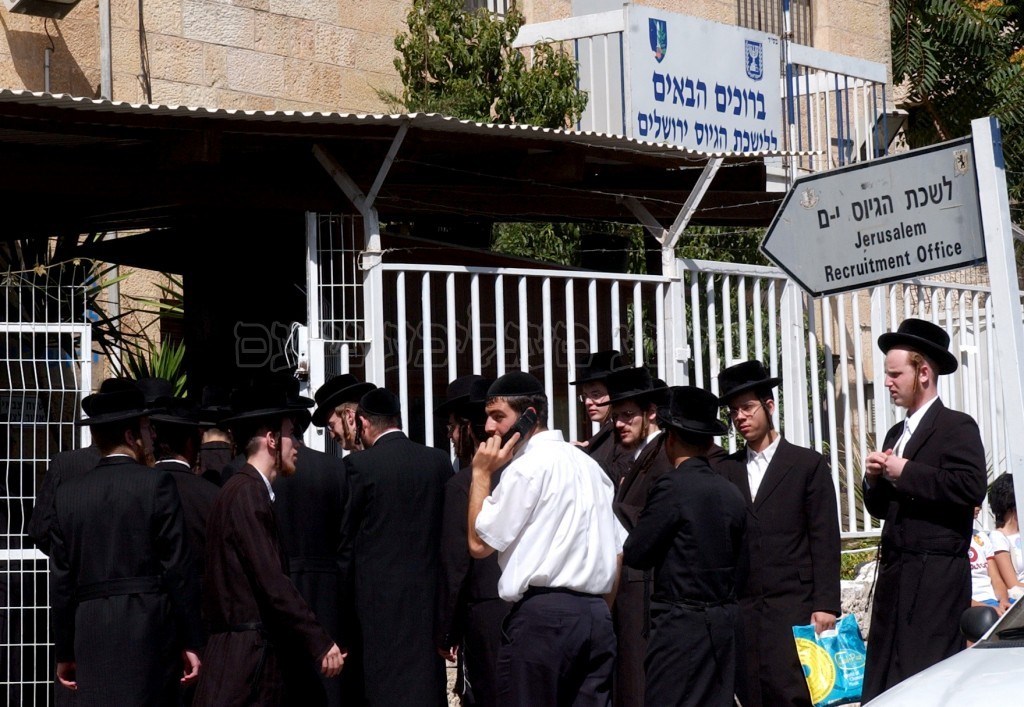
The Peri Committee Recommendations: Fanning the Flames of Haredi Extremism
Written By: Prof. Yedidia Z. Stern
IDI Vice President of Research Prof. Yedidia Stern warns that the Peri Committee recommendations on the ultra-Orthodox draft will undo progress already made in integrating Israel's Haredi community into Israeli society.

The ‘Jenin-Jenin Law’: A Blessing or a Curse?
Written By: Prof. Mordechai Kremnitzer, Dr. Amir Fuchs
In an op-ed in <em>Maariv</em>, IDI Vice President Mordechai Kremnitzer and Attorney Amir Fuchs warn that the proposed amendment to Israel's Anti-Defamation Law, which would allow IDF soldiers to bring a class action suit for libel when the operational activities in which they participated are criticized in the media, will have the opposite of its intended effect.

The ‘Jenin-Jenin Law’: A Blessing or a Curse?
Written By: Prof. Mordechai Kremnitzer, Dr. Amir Fuchs
In an op-ed in Maariv, IDI Vice President Mordechai Kremnitzer and Attorney Amir Fuchs warn that the proposed amendment to Israel's Anti-Defamation Law known as the 'Jenin-Jenin Law' will have the opposite of its intended effect.

Half-Measures in the War on Terror: An Israeli Perspective
Written By: Prof. Mordechai Kremnitzer, Prof. Yuval Shany
In an op-ed in The Jerusalem Post, Prof. Mordechai Kremnitzer and Prof. Yuval Shany discuss the need for measures, laws, and institutions designed to combat the war on terror in order to strike a balance between concern for national security and the need to safeguard democratic values such as human rights and the rule of law.

Crossing the Syrian-Israeli Border: Acts of War or Disturbances?
Written By: Prof. Yuval Shany
The violent incidents that took place on the Israeli-Syrian border in June 2011 raise the question of how the Israel Defense Forces should deal with violent events that resemble disturbances while at the same time affecting important Israeli security interests. IDI Senior Fellow Prof. Yuval Shany offers his analysis of the Israeli response to these events.

An analysis of the proposed comprehensive counter-terrorism bill that was prepared by IDI's Terrorism and Democracy research team and submitted to the Ministry of Justice.
Written By: Prof. Yedidia Z. Stern
In an op-ed in Yedioth Ahronoth, IDI Vice President of Research Prof. Yedidia Z. Stern urges the Israeli government to fend off political pressure, act morally, and assert that anyone who has converted to Judaism in the Israel Defense Forces is a Jew.

The Conversion Crisis: The Chief Rabbi of Israel vs. The Israel Defense Forces?!
Written By: Prof. Yedidia Z. Stern
The following op-ed by IDI Vice President of Research Prof. Yedidia Z. Stern was originally published in Hebrew in the <em>Yedioth Ahronoth</em> daily newspaper on December 8, 2010, just before the Knesset was scheduled to vote on a bill that would recognize the validity of all conversions performed within the context of the service in the Israel Defense Forces—a vote that Prime Minister Benjamin Netanyahu delayed by several days due to competing pressure within the political system. It urges the Israeli government to fend off political pressure, act morally, and assert that anyone who has converted to Judaism in the IDF is a Jew.

Rabbis vs. the Army: New Tensions between Religion and State
Written By: Kalman Neuman
Dr. Kalmen Neuman discusses the conflict faced by Orthodox soldiers who must choose between their religious commitment and the authority of the IDF when commanded to evacuate settlements.

Opinion: Will an Investigative Committee be Set up to Evaluate Goldstone’s Findings?
As calls for an independent Israeli investigation of the events of Operation Cast Lead grow stronger, IDI's Dr. Dana Blander looks at the history of Israel's investigative committees.

Opinion: Goldstone Notwithstanding, IDF Obligated to Investigate Conduct
Written By: Prof. Yuval Shany
This op-ed by IDI Prof. Yuval Shany argues that despite the Goldstone Report’s shortcomings, it strengthens the demand to investigate claims raised against the IDF through an extra-military entity. As he sees it, the main question to address is whether the army's internal investigation of "Operation Cast Lead" meets the requirements of international law.

Attempts to Undermine the Justice System Have Now Reached the IDF
Written By: Dr. Eran Shamir-Borer
A bill that would subordinate the professional work of IDF's highest legal authority to the IDF Chief of Staff, rather than the Attorney General, would have grave consequences for the rule of law, the IDF, and all who serve in it.
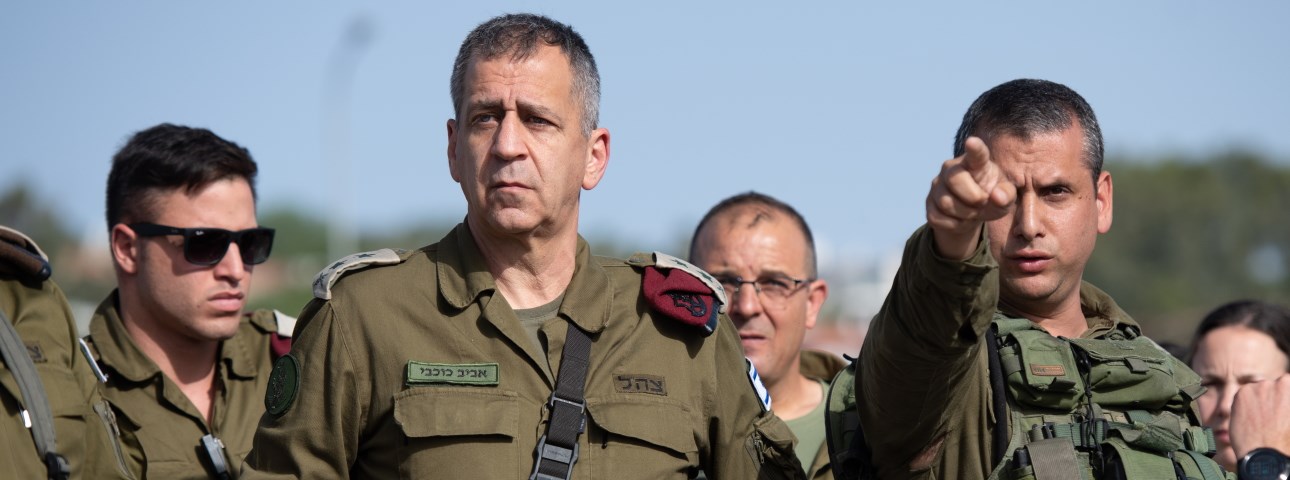
Restoring Public Trust in the IDF
Written By: Dr. Idit Shafran Gittleman
The decline in public trust in the IDF is troubling – especially among youngers Israelis who will soon fill the IDF’s ranks. What can be done to reverse this trend?

Don’t Let the IDF Sink into the Coronavirus Quicksand
Written By: Dr. Idit Shafran Gittleman, Prof. Amichai Cohen
The decision to call in the IDF is dealing a double blow to the country - it is both ineffective and is damaging the public’s trust in the IDF
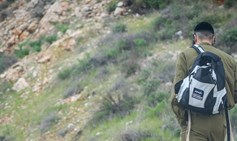
The “People’s Army”?
Written By: Dr. Asaf Malchi
This article presents the main milestones in the recurring attempts to put a satisfactory arrangement for the deferment of military service for yeshiva students in place. In doing so, it surfaces the changes that have occurred over time in the constitutional, legal, and public responses and attitudes on this issue.
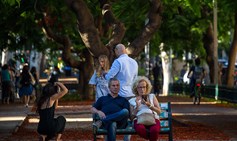
Peace Index: 40% of Israelis Believe that Rifts Between Groups Will Widen
Monthly survey also finds that 84.5% of Israeli public defines mood as good or very good while 43% expresses trust in Prime Minister Netanyahu.

How Israel’s Leadership Betrayed Democracy
Written By: Prof. Amichai Cohen, Dr. Idit Shafran Gittleman
Despite the verdict, the real story in the Azaria affair is the moral, not the legal, issue, and this debate is alive and well.
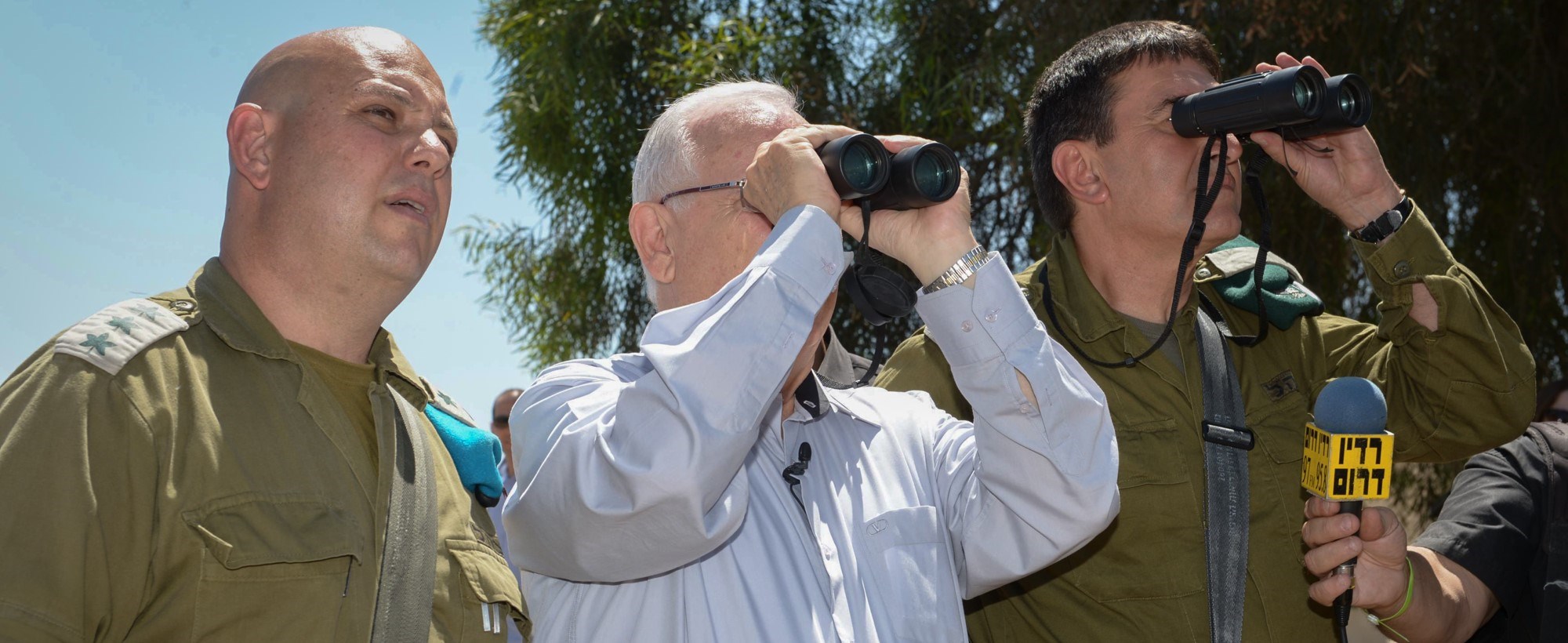
Three Years since Operation Protective Edge, Israeli Public Defines Israel’s Security Situation as Good
Latest Peace Index: More than half of Jewish and Arab Israelis see high chances of war between Hamas and Israel in coming year
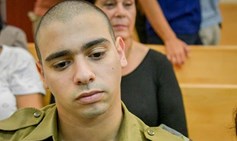
Pardon Requests in Cases Brought Before Israeli Military Courts: How Do They Work?
Written By: Colonel (Res.) Dr. Liron A. Libman
Even before the conclusion of the Elor Azaria trial, there were calls for the 'Hebron Shooter' to be pardoned. Under such circumstances, what does a pardon entail and how can an IDF soldier who had been sentenced in a military court of law be granted one?
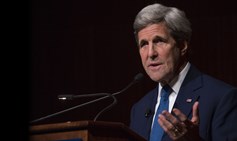
Arabs & Jews Agree: Trump will be Friendly toward Israel
Latest Peace Index: despite UN Security Council Resolution 2334, majority of Jewish Israelis support continued building in the settlements; Israelis consider trial of Elor Azaria unfair; in 2017, all are optimistic

IDI in the Media on Elor Azaria
IDI was quoted in nearly 500 articles connected to the Elor Azaria verdict, including interviews with Yohanan Plesner, Yedidia Stern, Mota Kremnitzer, Amichai Cohen, Tamar Hermann and Tehilla Shwartz Altshuler. We reached a potential 403 million individuals, through coverage in 28 countries and 42 states, plus Washington, D.C.
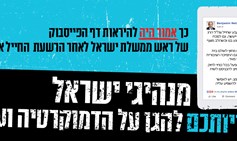
The Post that was Never Written
"The court must be allowed to pursue the legal process, without intimidation or attempts to undermine its independence."

Azaria and the ‘Helmand Incident’
Written By: Prof. Amichai Cohen
As the IDF's military court handed down its verdict in the case of Elor Azaria, the soldier accused by the military prosecutor of shooting and killing a terrorist who no longer constituted a clear and present danger, it is an appropriate moment to recall the recent experience of another soldier in another army.

After the Elor Azaria Trial:
Written By: Yohanan Plesner
Israel's senior political leaders are playing with fire when they publicly justify violating the rules of war and ethical conduct. Troublingly, a majority of the Israeli Jewish public agrees.

Elor Azaria: Statement by IDI President Plesner
Following the conviction of Elor Azaria on Wednesday, January 4, IDI President Yohahan Plesner called on leaders to spearhead a coordinated effort involving the education system, the IDF, and the political leadership.

Has an IDF Soldier Ever Been Convicted of Manslaughter?
Written By: Prof. Amichai Cohen
In the last decade, no member of the IDF has been convicted of an offense as serious as that with which Azaria is charged.



